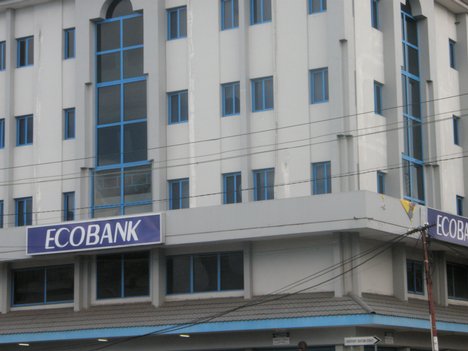
Author: Dr. Ezekiel Duramany-Lakkoh: Sierra Leone Telegraph: 17 April 2018:
International debt has implications for domestic growth. In the past decades, most developed and developing economies have adopted huge debt appetite in the process of stimulating economic growth. The United States, UK and China are no exceptions to this economic order.
 However, what is different with undeveloped economies like Sierra Leone is the weakness of the financial system: Large informal economic structures and weak private sector, driven by insignificant capital market.
However, what is different with undeveloped economies like Sierra Leone is the weakness of the financial system: Large informal economic structures and weak private sector, driven by insignificant capital market.
Sierra Leone, as most other Sub-Saharan countries, has exploited the huge fiscal boom of China and other risk appetite economies and institutions, to drive its infrastructural development.
But there is no empirical evidence to date to assess the economic viability of the country’s economic development, as against its exponential internal and external debt exposure.
However, external debt can be worrying, as it can constrain capital inflows, direct foreign investments, and ignite huge cash outlays from the consolidated fund to service these debts.
The most threatening is the domestic debt, which has catastrophic implications for both long and short-term public and private finance liberalization.
Domestic debt, which measures the level of government exposure to financial institutions and other businesses within the Sierra Leone economy, has both secondary and tertiary economic and financial ramifications, and can cascade into bigger and long-term economic problems.
 Firstly, huge domestic debt imperils government’s ability to meet recurrent expenditures, as debt servicing will crowd-out recurrent expenditures on government’s fiscal inflows.
Firstly, huge domestic debt imperils government’s ability to meet recurrent expenditures, as debt servicing will crowd-out recurrent expenditures on government’s fiscal inflows.
This in turn constraints public financial management systems and operations within the public service.
Secondly, when current domestic debts are bigger than current government revenue mobilisation, delays in servicing debt might cripple the private sector – both financial and non-financial.
Business people within the economy, who are suppliers of government utilities and who are pre-financing government contracts, suffer capital duplication base on delayed payments.
Most domestic businesses finance their operations from high interest rate loans from domestic banks.
The indebtedness of local businesses expands with the banks, as government delays payment. And by the time government pays, the total principal and interest accrued would have exceeded investment capital of private business. This is one reason why private businesses are usually unsuccessful.
Thirdly, financial institutions are exposed to the risk of delayed payments. However, banks can exploit the situation, especially when public borrowing normally use private sector borrowing mechanisms.
 To make it simple, government can use private individuals to borrow from banks, by awarding contracts that should be pre-financed by private business people. Banks can easily leverage their risks on perfected collaterals.
To make it simple, government can use private individuals to borrow from banks, by awarding contracts that should be pre-financed by private business people. Banks can easily leverage their risks on perfected collaterals.
Some financial experts will argue that even collateralization is an issue in an economy where foreclosure precipitate a long legal battle.
But on the other hand, no businessman wants his high value properties confiscated.
The appetite of government to borrow, especially through short-term securities like Treasure Bills or Bonds, creates an opening for Banks to abandon financial openness, financial inclusions and open and honest financial intermediation in lieu of almost risk-free government Treasure Bills and Bonds.
In conclusion, it must be said that every government should borrow. The global economic dispensation is designed for debt and equity to syndicate.
However, excessive government borrowing can cripple long-term government development initiatives, as a highly geared economy can trigger higher interest rates and illicit business activities.
 About the author
About the author
Dr. Ezekiel Duramany-Lakkoh is a Financial Management Consultant, Lecturer and Head of Accountancy Department at IPAM – University of Sierra Leone. He is an economics and financial correspondence for the Sierra Leone Telegraph.
For a country’s GDP to start rising, its market must be efficient.